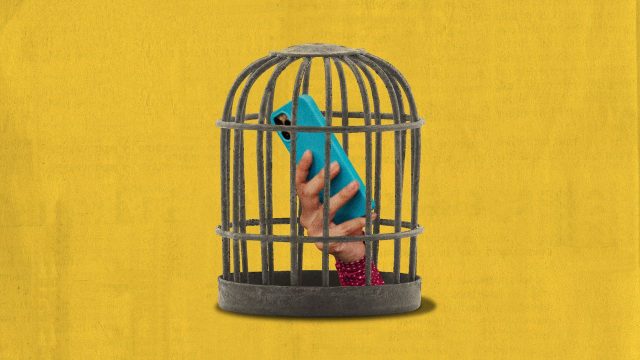
Many students are turning to technology that predates the rise of smartphones. It is a direct —and creative — reaction to the cellphone bans instituted by schools and institutions across the country.
The future is retro
Schools with so-called “bell-to-bell” phone bans have turned into looking glasses, peering into the recent past. Around the hallways and in the classrooms, old technology has been making a comeback. Gen Z and Gen Alpha’s “appreciation for flip phones, digital cameras and other gadgets of the recent past is well-documented,” said The New York Times. That fondness “seems to have taken on new urgency in response to a wave of smartphone restrictions in schools that has reached more than a dozen states.” As a result, you can find old iPods, Walkmans and Polaroid cameras in the hands of many an affected student.
The younger generation’s nostalgia for a time before smartphones is not new. “The breakneck speed of tech has led to a fondness for a quieter, more comfortable time,” said The Independent. This has especially been true since the Covid-19 pandemic. Post-Covid shutdowns, “cellphones seem to function as almost an extra limb for my students, an ever-present extension of both their body and mind.” Joel Snyder, a government and economics teacher in Los Angeles, said in a piece for Chalkbeat. This has led many to miss a “simpler time when their entire lives didn’t exist inside their phones, which, at that point, were just gadgets akin to a portable CD player or a Game Boy,” said The New York Times.
The nostalgia doesn’t stop at technology. One school with a cellphone ban also brought back non-Internet games and activities. “The ‘old-school things’ ballooned from puzzles and chess boards to a rotating craft of the month: a sewing machine, a laser engraver, a heat press, bedazzling materials and calligraphy pens,” said The Washington Post.
Log off
Schools that have instituted cellphone bans have seen a marked change in student behavior. “The most common things they say are that discipline problems are down,” Jonathan Haidt, author of “The Anxious Generation,” said to the BBC. There is also “just a lot less fighting, a lot less drama,” and “truancy is down.” This is because “school is a lot more fun when you can actually talk with your friends and play with them and laugh with them.”
Many schools with the bans found that not having cellphones was generally well-received by both students and teachers. “You just saw a lot more people being outgoing and finding people to talk to when they might not have in the past,” Madeline Ward, a former student at Bethlehem High School in upstate New York, said to the Post. “Students deserve more,” said Snyder. “More space to be present in the classroom, more opportunity to engage with each other and more time away from screens.”
From MP3s to sewing machines






